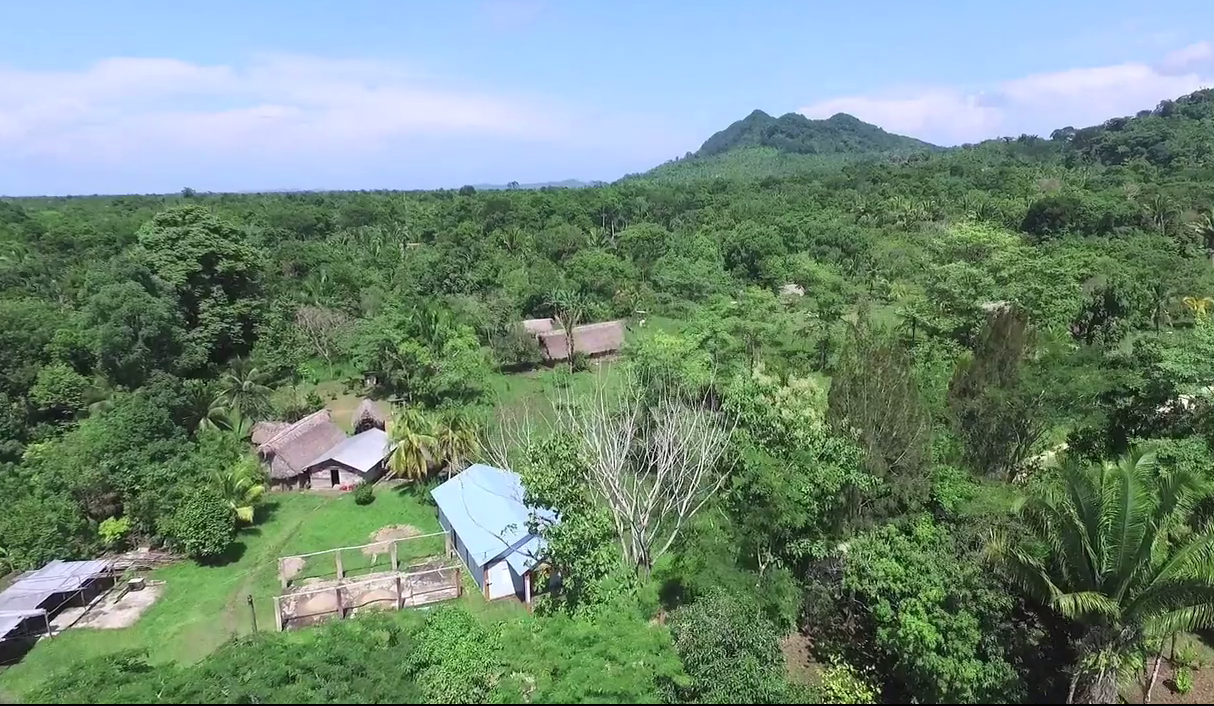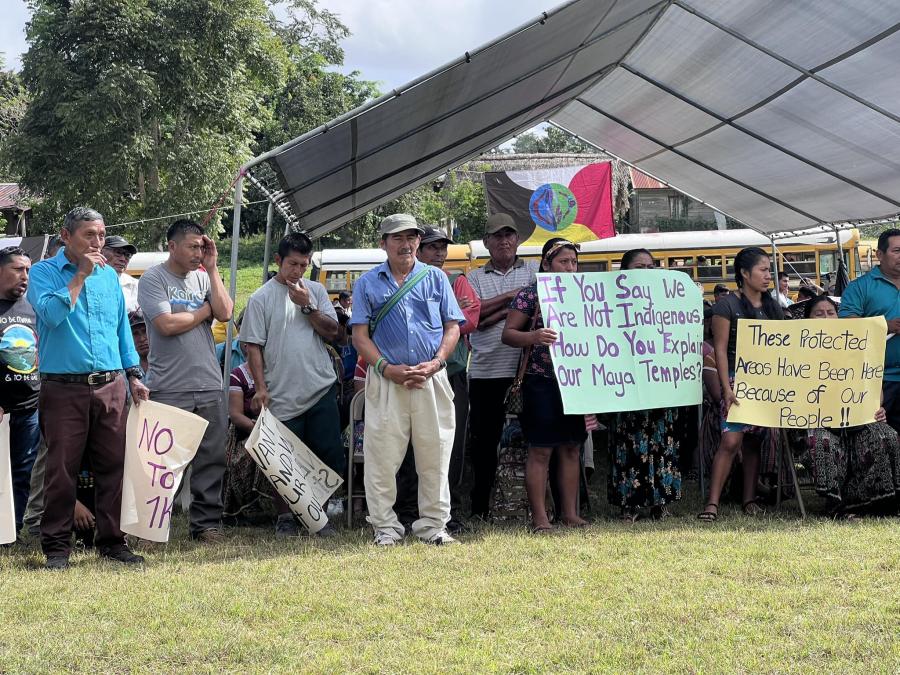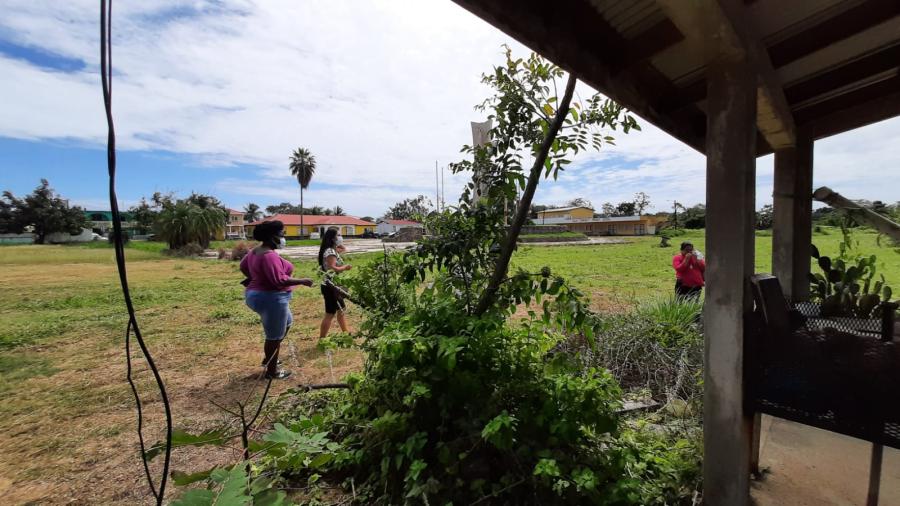
Photo: Screen grab of OHCHR video marking the 10-year anniversary of the UN Declaration on the Rights of Indigenous Peoples, showing a Maya village in Toledo, Belize.
In a regional international court on Monday, October 23rd, 2017 Maya leaders attested there has been a “complete failure” by the government of Belize to abide by the court order to identify and protect the proprietary rights of the Maya Peoples to their customary lands.
In April 2015, after decades of lawsuits in the national courts in Belize, the Maya people of Toledo achieved a groundbreaking victory at the Caribbean Court of Justice, Belize’s highest appellate court. The court decision reaffirmed that the 39 Q’eqchi and Mopan Maya Indigenous communities of southern Belize have rights to the lands they have customarily used and occupied. The court affirmed that these traditional land rights constitute property equal in legitimacy to any other form of property under Belizean law. The judgment was the culmination of litigation filed against the government of Belize by the Maya Leaders Alliance and the Toledo Alcaldes Association on behalf of the Maya villages. The government of Belize in the past has vigorously contested the assertion that the Maya have customary land rights.
Now, almost three years since that decision, the Maya Peoples are still awaiting the implementation of the court’s order. Attorneys for the Maya Leaders Alliance and the Toledo Alcaldes Association, who are the appellants in the case, outlined various issues and concerns related to non-compliance of the court order during a hearing on their case on October 23, which was live broadcast and is available to the public here: bit.ly/ccjmaya
The appellants explained to the court that the Government of Belize has failed in following through with the order to abstain from acts that allow third parties to adversely affecting the value, use, and enjoyment of the lands customarily used by the Mayan villages. They noted that the government has continued to issue forestry and other resource extraction permits on Maya lands without the consent and consultation with the Maya people. They highlighted that the government has made little progress in the demarcation and documentation of Maya lands, as ordered, and have failed to develop a legislative mechanism for which Maya customary land title may be established in equal weight as private lands.
The appellants also revealed a government effort to challenge the legitimacy of the Mayan traditional governance structure. Rather than consulting the Maya peoples through their established bodies of representation, the government’s efforts have sought to directly contact Maya leaders in their individual capacity, isolated from their technical assistance and organizational support. “We find this especially egregious,” commented Magali Marin S.C. in her opening statement.
Lastly, the appellants highlighted that the sum that the court awarded as damages to the Maya Peoples and directed to be used for the implementation of the Orders has not been appropriately handled.
Watch: Pablo Mis, Program Coordinator for the Maya Leaders Alliance, reacts to the hearing:
From the bench one of the Justices remarked that although the court Orders are strong, they remain simply words on page, pointing out the need to put the Orders into action and that it must be stepped up. The Court reconvenes On October 30th 2017 where further Orders will be given to help guide a more engaged implementation process.
Belize’s failure to implement the decision has been criticized by human rights groups. “This case was an opportunity for Belize to lead the way in Indigenous land rights globally,” said Danielle DeLuca, Advocacy Program Manager for Cultural Survival, which acted as an international observer of the hearing. “Human rights experts, Indigenous legal scholars, and government officials from around the world are closely following this case. Unfortunately, the government has chosen to be regressive in their actions and will face heavy criticism for this at the international arena in the coming year if they do not change course.”
The legal achievements of the Maya People in Belize were recently celebrated as a milestone by the United Nations in a video commemorating the 10th anniversary of the the United Nations Declaration on the Rights of Indigenous Peoples.
In 2018, Belize will be under examination through the Universal Periodic Review, which considers the human rights record of countries on a four year cycle. Under it’s first review, Belize was instructed to Protect Mayan customary property rights in accordance with Mayan customary laws and land tenure practices in consultation with affected Mayan people of the whole Toledo district.


